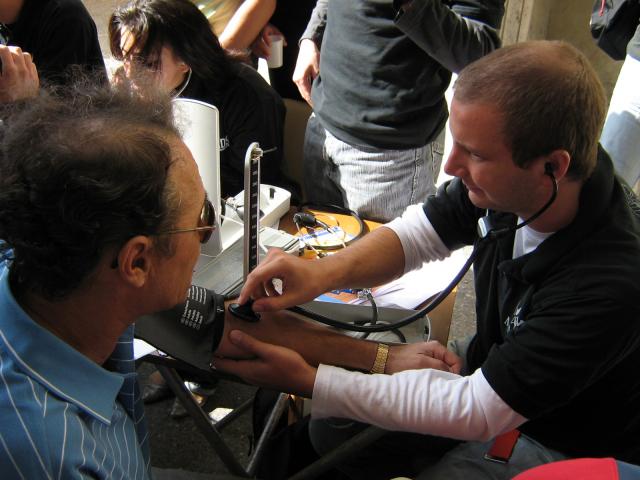
- Details
- By Native News Online Staff
Two members of Congress introduced a bill Apr. 18 that would make payments made to tribal citizens under the Indian Health Professions Scholarship Program tax-exempt.
The scholarships, awarded by the Indian Health Service, provide financial aid to American Indian and Alaska Native undergraduate and graduate-level students who are enrolled in an eligible program for a health-profession degree. In exchange, recipients agree to spend at least two years working at an Indian health facility after they complete their training.
Indian Health Professions scholarship recipients must pay taxes on the money they receive from IHS, however. The IHS Health Professions Tax Fairness Act, introduced by Rep. Gwen Moore (D-Wisc.) and cosponsored by Rep. Tom Cole of the Chickasaw Nation (R-Okla.), would make “certain amounts received” under the program tax-exempt, along with payments under the Indian Health Service Loan Repayment Program.
Recipients of National Health Service Corps and Armed Forces Health Professions scholarships receive similar tax exemptions.
Rep. Moore said the bill would help alleviate provider shortages in Indian Health Service clinics, which “don’t have enough doctors or nurses to provide quality and timely health care to American Indian and Alaska Native people,” according to a 2018 report by the federal Government Accountability Office. The report cited IHS data that on average, 25% of positions for health-care providers such as nurses and pharmacists are vacant, including more than 400 in the Navajo area. It said the positions are often difficult to fill because of their rural location, a lack of housing, and trouble matching salaries in the local market.
“One way to reduce inequities facing these communities and combat this challenge is to exempt these programs from federal income-tax requirements, which already exist for similar programs,” Moore said in a statement. “This change will remove unfair financial barriers preventing IHS from filling crucial jobs and increasing staff retention, and will help increase the quality of care for patients. With our bipartisan bill, we help Native Americans enter health professions and invest in the health of their communities.”
More Stories Like This
Bipartisan Vote Keeps Institute of American Indian Arts Alive and FundedNew UNLV Executive Certificate Focuses on Tribal Governance, Economic Leadership
Bureau of Indian Education Graduation Rates Increase as Agency Reforms Fold into Interior and Labor Departments
Deb Haaland Announces Education Platform, Secures Teachers Union Backing
Native Americans Could Be Hit Hard as Education Department Resumes Student Loan Wage Garnishment
Help us defend tribal sovereignty.
At Native News Online, our mission is rooted in telling the stories that strengthen sovereignty and uplift Indigenous voices — not just at year’s end, but every single day.
Because of your generosity last year, we were able to keep our reporters on the ground in tribal communities, at national gatherings and in the halls of Congress — covering the issues that matter most to Indian Country: sovereignty, culture, education, health and economic opportunity.
That support sustained us through a tough year in 2025. Now, as we look to the year ahead, we need your help right now to ensure warrior journalism remains strong — reporting that defends tribal sovereignty, amplifies Native truth, and holds power accountable.
 The stakes couldn't be higher. Your support keeps Native voices heard, Native stories told and Native sovereignty defended.
The stakes couldn't be higher. Your support keeps Native voices heard, Native stories told and Native sovereignty defended.
Stand with Warrior Journalism today.
Levi Rickert (Potawatomi), Editor & Publisher


